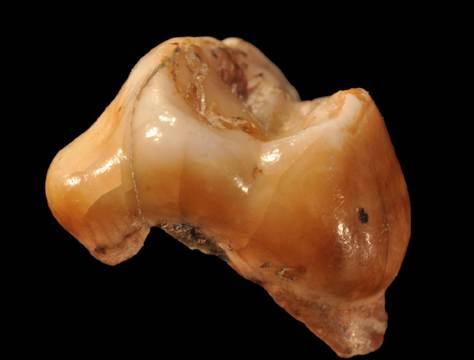A baby molar from the Grotta del Cavallo in Puglia has been confirmed as the earliest human remain ever found in Europe.
The tooth was first discovered in 1964, but had been misclassified as of Neanderthal origin rather than Homo Sapiens. New research shows that Europe's earliest humans lived in southern Italian caves 45,000 years ago; 5,000 years earlier than previously believed.
Stefano Benazzi, a physical anthropologist at the University of Vienna, used digital models from CT scans to compare the teeth to other Neanderthal remains. His team found that the Italian teeth are more closely related to modern humans.
Before research confirmed the origins of the baby tooth found in Puglia, the earliest evidence of modern humans in Europe was found in Romania, dating back 40,000.
Benazzi's research has been published in the highly respected science journal, Nature.



